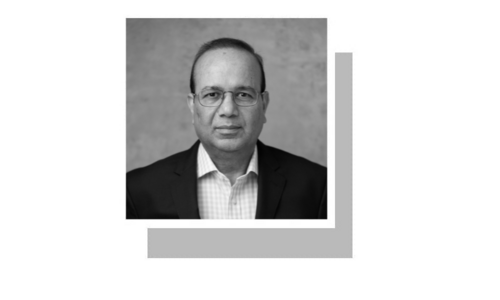I recently met Roshaneh Zafar, founder of the venerable Kashf Foundation. I came away very impressed.
What impressed me the most was not Zafar’s foundation — though it deserves much praise for being one of the world’s most renowned microfinance organisations — but rather her own life story.
Zafar was privileged enough to come to the US to get her undergraduate and graduate degrees. Yet, instead of returning to Pakistan to pursue a career in politics or corporate finance, she decided to work directly with the Pakistani people. In her case, low-income females — nearly 300,000 of them.
This then got me thinking about the Pakistani diaspora. How many of them choose to return to Pakistan to help ease the nation’s plight?
For sure, many if not most Pakistani-Americans and US-based Pakistanis retain strong links to Pakistan. Some do so by staying close to relatives still in the country, or via the Internet and the various Pakistani media outlets accessible in America. Others quite famously exemplify the diaspora’s “giving” bonafides. We often hear about the remittances sent back to relatives, yet it’s equally important to acknowledge the humanitarianism. This largesse can be seen in the work of groups like APPNA, but also from the quiet actions of individuals. I know of various Pakistani-Americans — who otherwise rarely visit Pakistan — spending extended periods in the country to provide relief assistance after the 2010 floods.
Then there are the many diaspora organisations dedicated to Pakistan. Some, such as the various chapters of the Pakistani American Association (from North Carolina to Florida), promote Pakistani culture. Others, such as the Pakistan American Business Association, advocate business ties between the two countries. Still others are unabashedly political.
In the context of politics, only in recent months have I begun to fully understand the considerable influence Pakistani politicians’ exercise over the diaspora. As I’ve suggested before (only somewhat in jest), Pervez Musharraf seems to have more supporters in America than he does in Pakistan (and he has an extraordinary public relations operation to sustain his apparent popularity here). Then there’s Imran Khan, whose PTI party was scheduled to hold a jalsa in New York City until it was abruptly postponed with no apparent explanation. When Musharraf spoke at the Woodrow Wilson Center last summer, many of the 400 people in attendance were Pakistani-Americans. I suspect a visit by Khan would draw many more.
Yet my main interest here is those diaspora members who decide to go back to Pakistan — and not simply to visit relatives or attend weddings. I’ve previously alluded to Ijaz Nabi and Adil Najam, long-time successful professionals in this country who returned to Pakistan to join LUMS. There are also the likes of Pakistani-American Nadia Naviwala, a Harvard-educated, one-time USAID staffer who not long ago decided to relocate to Pakistan to serve as the US Institute of Peace’s country representative there.
These are only the more well-known cases. I recently received an email from a young, newly minted law school graduate, born and raised in America, who had decided to move to Pakistan — where she had never lived before. I imagine there are other examples like this one.
So what inspires diaspora members to return to Pakistan? More than three years ago, a blogpost by Nosheen Abbas highlighted the various opportunities diaspora members perceive in Pakistan, and the sense of attachment that attracts them.
In truth, I doubt there’s one overarching motivating factor — and certainly not idealism. Several years ago I had lunch with a deeply cynical diaspora member who lamented — as many do — the hopeless state of Pakistan. Not too long after this conversation, he returned to the country to take a prominent position in government. He was likely drawn to Pakistan by a job, not by do-goodism.
Another question is how diaspora members are treated once they arrive back in Pakistan. Do they encounter hostility? Are they dismissed as out-of-touch outsiders? And, in the case of those born in the United States, are they tainted for being Americans?
On all accounts, I suspect the answer is no. Various Afghan and Iraqi diaspora members (from accountants to politicians) have returned to help rebuild their countries of origin, a process that seems to be encouraged in these countries.
Pakistan is not a nation trying to rebuild, but it is a nation trying not to fall apart. Contrary to those subscribing to messiah theories of governance, Pakistan cannot be “saved” by a single great leader. Rather, it needs better institutions — both state and private — with both the ability and will to truly respond to the basic needs of the masses.
If diaspora members choose to leave stable and comfortable lives in America and come to Pakistan to help strengthen these institutions, then I don’t see why they should be received with anything other than appreciation.
The author is the program associate for South Asia at the Woodrow Wilson International Center for Scholars in Washington, DC. You can reach him at michael.kugelman@wilsoncenter.org and follow him on Twitter: @michaelkugelman
The views expressed by this blogger and in the following reader comments do not necessarily reflect the views and policies of the Dawn Media Group.













































